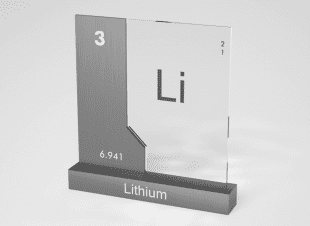Australia must act quickly and decisively to take advantage of its leading position in the global lithium resources market, or risk missing out on what could be a $2 trillion value supply chain, a new report has warned.
The report, commissioned by the Association of Mining and Exploration Companies, says that Australia is in a strong position to gain significantly from its abundant lithium resource, as the global battery market – a key ingredient in both the booming renewable energy and electric vehicle markets – gears up for exponential growth.
Lithium based batteries – which have been powering our mobile phones and laptops for years now – are rapidly emerging as the favourites in both stationary and mobile battery storage, with variations on the theme used by a number of global battery and EV giants including Tesla, BYD and Sonnen.
But while Australia is currently responsible for mining the majority of the world’s lithium, and also mines all of the minerals needed to make batteries on its home soil, the report warns that a failure to look beyond this natural advantage, to opportunities that lie further down the supply chain, could cost the nation dearly.
“It is crucial that action is taken quickly so Australia takes a share of the thousands of new jobs (skilled and semi-skilled) in this two trillion-dollar value chain,” the report says.
The report, published by Future Smart Strategies on Tuesday, says that under a “business as usual” scenario, Australia would will continue to “gain significantly” from lithium mining, but risked losing out on its share of the total market value, downstream.
It also risked locking in a “negative balance of trade impact,” the report said, caused by a need to reimport value-added products from further down the supply chain, such as the batteries themselves, at high prices.
Further opportunities in research and development, manufacturing, and “cross-sector synergies” also risked being missed, the report said, under a business-as-usual approach to the lithium mining sector.
“There is a limited window with many other countries already aggressively moving to take capitalise on these opportunities,” the reports authors, Ray Wills, Howard Buckley and Neil Prentice warn.
The authors point to examples from a number of countries around the world, including some of Australia’s near neighbours, where governments have introduced policies and programs to support downstream lithium processing opportunities.
“China has a range of government policy settings and industry support programs to drive growth of the lithium value chain from production to final consumption,” the report notes.
This includes both the adoption of electric vehicles and stationary storage, including the most recent announcement to phase out petrol- and diesel-fueled vehicles.”
The bottom line, says the report, is to use policy and other levers and mechanisms to drive consumer demand and affordability for stationary and mobile battery storage at the end of the lithium value chain.
“As Australia debates energy policy for the nation for the next decades, few federal regulatory measures or other incentives support the value adding or consumer demand aspects of the Lithium Value chain,” it says.
“Government, industry and industry associations must collaborate to capture this opportunity.”









